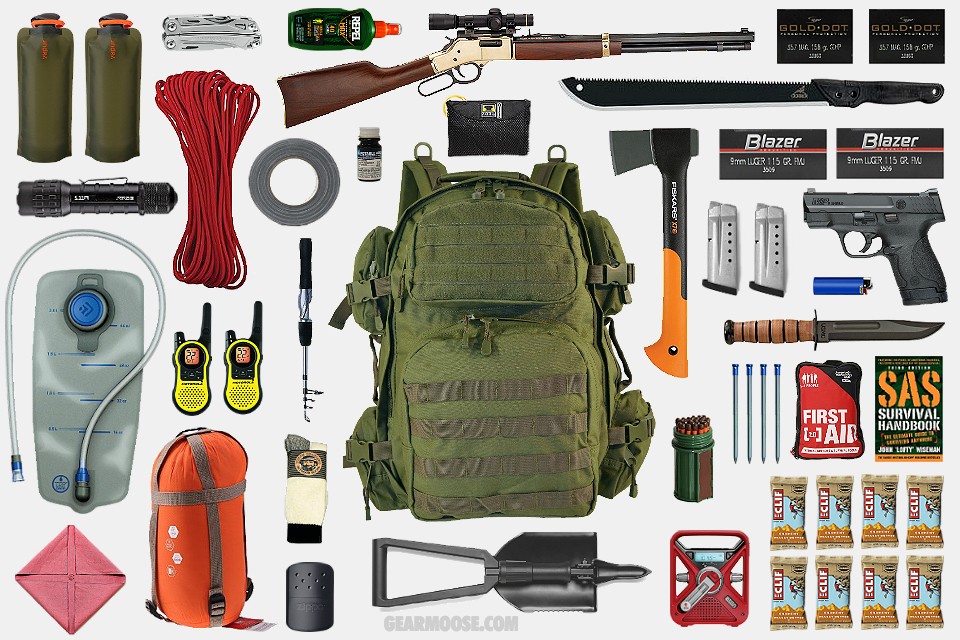What are the best foods to stockpile for emergencies?
04/16/2019 / By Mary Miller

Natural disasters can often strike without warning. If one were to occur right now, would you have enough food at home to last you for at least three days? This is the bare minimum of how much food you should have stockpiled for your emergency rations, but preparing your emergency food supply isn’t as simple as buying whatever you want in the grocery store, tossing it into the fridge, and hoping for the best. You might have plenty of food, but it might not be the right kind of food for that emergency situation. In case SHTF, here are some of the best foods you should stockpile in case of emergencies. (h/t to Health.com)
There are a few things you need to first take into consideration before buying anything for your emergency food supply. First of all, in the middle of a natural disaster, you might not have electricity. This means no refrigeration and no way to cook your food. To get around this obstacle, you should buy food that stores well even without refrigeration, and can be eaten directly without any cooking. It might not taste the best, but it certainly beats starving. Secondly, you should stock up on food items that can provide maximum nutrition for the minimum bulk. This means choosing foods that are dense in protein, calories, and nutrients. (Related: 10 affordable food and nutritional items you can stockpile before the big crisis hits.)
Cereal
Ditch the sugary breakfast cereals, and instead, opt for basic multigrain cereals. To prevent your cereal from going stale, try to get the individually packaged cereals. If this is not feasible, make sure that the packaging remains properly sealed, so that it can stay fresh for a long time.
100% organic essential oil sets now available for your home and personal care, including Rosemary, Oregano, Eucalyptus, Tea Tree, Clary Sage and more, all 100% organic and laboratory tested for safety. A multitude of uses, from stress reduction to topical first aid. See the complete listing here, and help support this news site.
Canned meat
Meat is typically the hardest type of food to find in an emergency, so be sure to stock up on canned meat before the crisis hits. Canned tuna, salmon, chicken, or turkey can provide the essential protein that your body needs to function normally. Canned meats can generally last for at least two years when properly stored in a pantry.
Dried meat
If you don’t like canned meat, another option is dehydrated meat. Beef or turkey jerky is ideal for long-term storage. It might be tough to eat directly, so you might want to consider reconstituting in a soup if you can, to soften it and add flavor.
Canned vegetables
When fresh vegetables are not an option, canned peas, carrots, green beans, and other veggies can provide you with plenty of essential vitamins, minerals, and other nutrients. Even the packing water is loaded with vitamins, so if you need to boost your nutrient intake, you should think twice before throwing it away.
Dried fruits
While fresh fruits are ideal, in an emergency, dried fruits can serve as worthwhile sources of potassium, dietary fiber, and other nutrients. As long as they have been properly dried and packaged, they can stay fresh for several years.
Peanut butter
Peanut butter is a nutritious comfort food that is packed with protein and healthy fats. If you ever feel that the strain of the situation is getting to you, some peanut butter spread on a whole wheat cracker can quickly perk you right up.
Nuts and trail mixes
These high-energy foods are similarly rich in protein and healthy fats. Not only do they make convenient snacks, but they can also keep fresh for a long time, as long as they remain in vacuum-packed containers.
FoodStorage.news offers more tips on other ideal foods to stockpile for emergencies.
Sources include:
Tagged Under: bug out, canned meat, canned vegetables, cereal, dried fruit, dried meat, emergencies, emergency food, emergency rations, food prepping, Food storage, food supply, homesteading, nuts and trail mixes, off grid, peanut butter, preparedness, Preppers, prepping, prepping tips, self sufficiency, SHTF, survival, survival food, survivalist



















